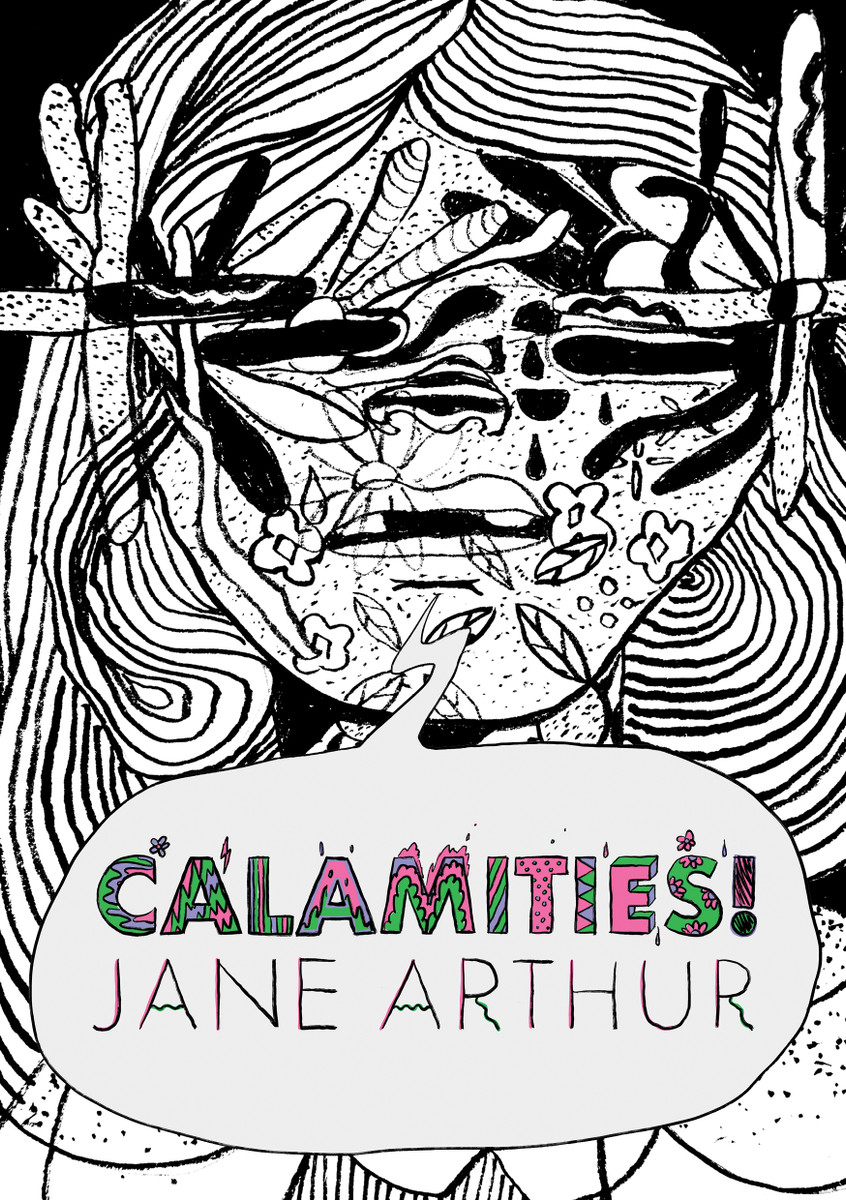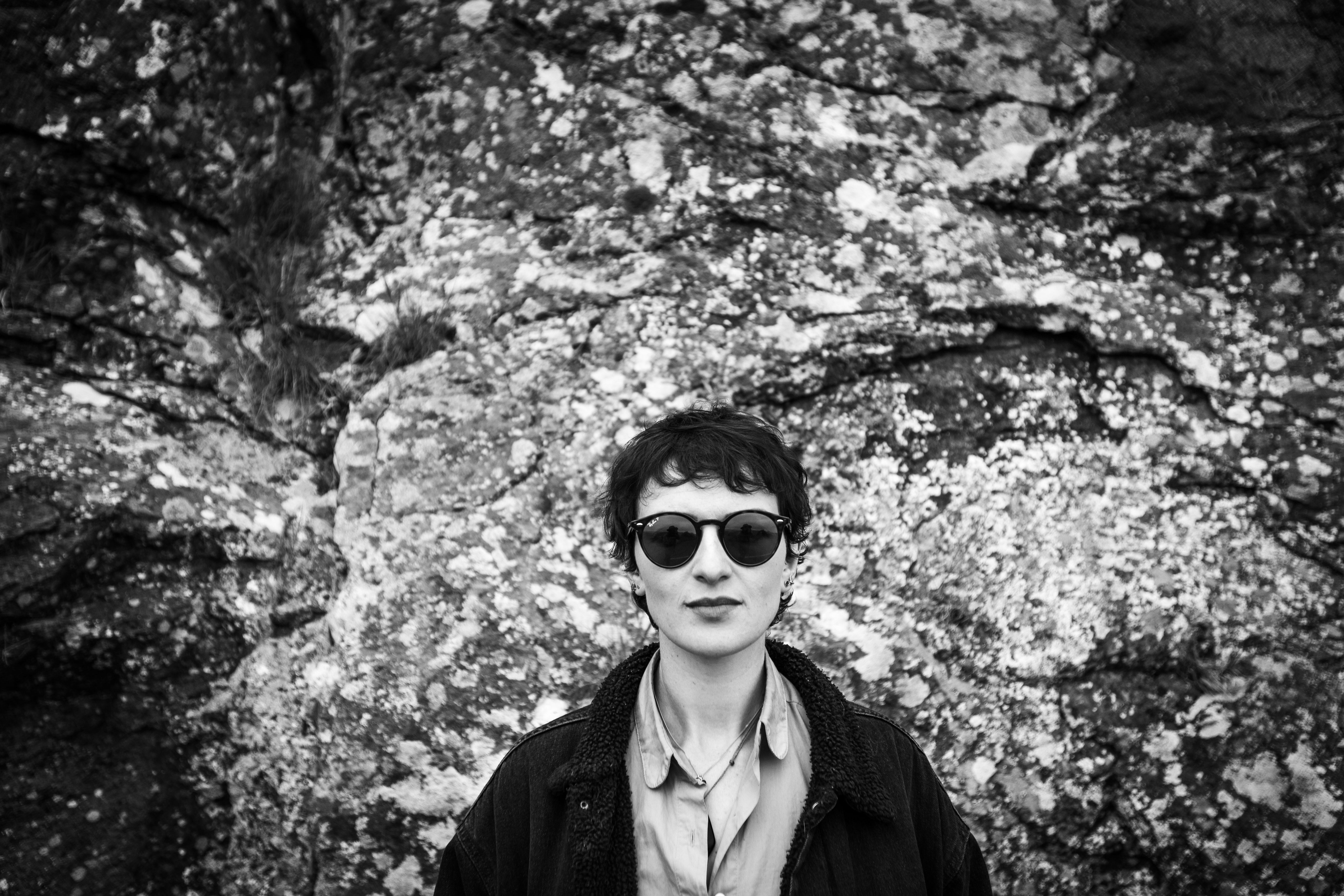Calamities!

Calamities! by Jane Arthur. THWUP (2023). RRP: $25.00. Pb, 72 pp. ISBN: 9781776920723. Reviewed by Hester Ullyart
There is an unapologetic doom cloud running though this collection. Split into three sections, RISK ASSESSMENT, THE BEAR and HIGHLY FLAMMABLE, it is a poetry/prose/poetry triple decker charcoal sandwich that opens with:
‘This apocalypse is more boring/than Hollywood has prepared me for’
(The Better To See You With, My Dear, p. 11)
and hovers like a bad omen at the table, exclaiming loudly that everything is fucked, and that:
‘joy came only before or after apathy/
and elation usually preceded a migraine’
(Meteorite, p.12)
—this is a lasso of worry and fatalism strung high that I try to wriggle from when I feel it in myself. It’s an over-thinkers’ jacuzzi party, but that’s no surprise—the title, Calamities! paints itself with tongue in bleak catastrophe and a wry swooning self-awareness. Arthur worries whether she has lost connection to the real world and is now only able to connect with funny dog memes on repeat. I think a few people might connect there.
It seems that the events of the past few years have scratched their claws into the poet’s human experience like old wolfie to the pigs—a title like ‘When I Think of Parties I Think of Disease’ (p.30) speaks for itself.
‘By the way, that’s not cream that’s risen to the surface, / it’s an oil slick.’ (p.31) is the offending last line, and a good example of the un-glossed shoves the voice executes throughout.
Arthur works her magic best on me when she deftly describes snapshots of a life lived and loved with the lumpy bits left in:
‘We tag team bad moods, which is my latest, most appreciative definition of romance’
(The Sky is Bigger, p.48)
and when she dives into imaginative narrative, with odd, sometimes unsettling, animalistic imagery, which has an almost olde worlde feel to it:
‘I find a goat whose keyhole eyes/
are so blank I start to cry ferociously’ (The Bear, p41)
I like the original phrases that stick on re-reading:
‘I still enter/with my upstage foot’ (What Has Changed, p.27)
as it is with these that Arthur snags us back into the poem, something the writing’s conversational tone benefits from.
Can you learn to love a fear that swallows your every waking moment? Do we secretly covet its wildness and grow attached to it? In ‘The Bear’ Arthur imagines herself in a cave, nightmarish and inevitable. Time skips, loved ones turn up worried with no explanation while she pisses, shivers, and huddles, much like a dream:
‘Their eyes well with tears so I don’t tell them about the bear.’ (p.38)
It feels like a big fat metaphor for a fight or flight system ruled by perceived outside danger, our self-appointed cage companion for life, this thing called anxiety. Reading this on a rainy afternoon sprouted a glad new in-joke between a close friend and I, the phrase ‘got the morbs’. It’s catchy. This collection will let you revel in it.
Perhaps the comfort is in the writing, in catharsis of saying it how you feel it really is, blunt, unforgiving, not too fancy, puncturing the fairy tale to a soundtrack of flies dying their last in glasses on shelves. If you imagine the worst, then the worst has already happened, right?
I wished for more glimmers of light in the dark lens I was swimming through, but apparently that’s the point. So did Arthur. She ends with ‘Imaginary Den’ – which spells warmth and a desire to feel another way, opening the heart like a dog rustling into its long-gone sleeping space.
‘Let me dig my little hole. Let me/settle down into it, feigning safety. Let me.’ (p. 68).
Writer, actress, performance poet, director, song maker—Hester Ullyart is an award-winning artist hailing from the port city of Hull, England, home of fish and chips by the estuary. She lives in Te Whakaraupō where she writes, watches, and makes, whenever she can. www.hesterullyart.com
